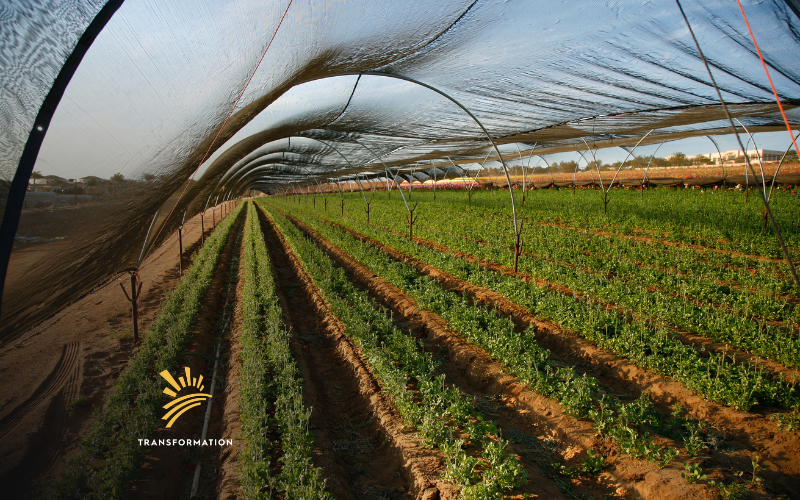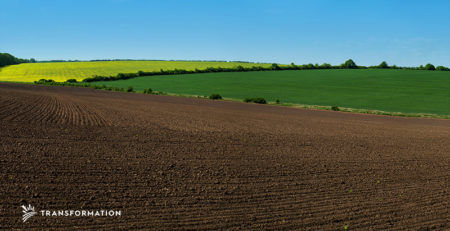Sustainable Agriculture: Balancing Profitability With Social and Environmental Responsibility
Are you interested in making a difference while achieving financial returns? Increasingly, sustainable agriculture is being seen as an attractive option for investors seeking to contribute towards social and environmental objectives.
As populations increase, the need to mass produce and deliver food and clean water rises. In fact, water use and consumption are impacted in two ways, through the need to find renewable sources of safe drinking water and the impact of agriculture on water usage.
According to the UN’s Sustainable Development Goals Report:
- More than 100 million people have been forcibly displaced across the globe due to armed conflict, drought, and other health or economic crises.
- More than 17% of available food is wasted at all levels; 13.3% of the food produced never even makes it to market.
- Food in landfills accounts for as much as 10% of greenhouse gas emissions.
What’s more, agriculture is the single largest consumer of available water, accounting for as much as 70% of annual freshwater withdrawals.
These statistics point to the importance of reducing food waste and developing more sustainability in agriculture.
What is Sustainable Agriculture?
Sustainable agriculture emphasizes the need to balance profitability with social and environmental responsibility in food production and delivery.
The goals are to:
- Develop sustainable farming techniques
- Reduce food waste
- Conserve water and energy resources
- Protect profitability for farmers
By adopting sustainable agriculture practices, specifically soil management, crop rotation, and organic farming, we can save our farms and the planet while alleviating hunger on a global scale.
How Sustainable Practices Protect the Food and Water Supply
Investment, development, and implementation of sustainable, eco-friendly agriculture will have a huge impact on our continued viability. It focuses on three specific areas that are ripe for the kind of investment potential that has a positive impact on societies all over the world: soil management, crop rotation, and organic farming techniques.
The Importance of Soil Management
Soil management is a critical component of sustainable agriculture. It involves maintaining and improving the health of the soil, which is essential for crop growth and farm productivity. It also helps to prevent soil erosion and supports the healthy soil needed for optimal growth of plants and animals.
For example, cover crops and crop rotation keep soil healthy and productive while increasing yield. Reduced tillage protects the soil by creating shallow furrows and reducing soil disturbance with the ultimate goal of decreasing the frequency and need to till at all.
The Benefits of Crop Rotation
Crop rotation is another crucial practice in sustainable agriculture that involves planting different crops in a particular field each year. Different plant types have varied nutritional needs, so rotating the crops decreases the depletion of nutrients and supports soil fertility. It also impacts soil erosion while preventing diseases and pest infestations that damage crops.
Organic Farming and Environmental Responsibility
Organic farming is a farming practice that focuses on using natural inputs and avoiding the use of synthetic chemicals in pesticides and fertilizers. It has become a crucial aspect of sustainable agriculture due to its environmental benefits and climate change mitigation potential.
By adopting organic farming methods, we can not only reduce soil and water pollution, but we will also reduce GHG emissions by eliminating toxic synthetic fertilizers and pesticides. This also protects animal welfare and biodiversity.
Balancing profitability, social responsibility, and environmental responsibility through these three components is crucial in sustainable agriculture because it:
- Ensures the long-term viability of farming systems. By balancing profitability, social responsibility, and environmental responsibility, farmers can create resilient and economically viable operations that can withstand challenges and changes in the future.
- Minimizes negative environmental impacts, such as conserving soil health, reducing chemical inputs, managing water resources efficiently, and minimizing carbon footprints.
- Recognizes the finite nature of resources like water, land, and energy. By creating a balance, farmers can optimize resource use, reduce waste, and promote efficiency.
- Considers the well-being of farmers, workers, and local communities. Balancing profitability with social responsibility means ensuring fair wages, safe working conditions, and providing opportunities for local employment. It also involves promoting access to nutritious food, supporting local economies, and engaging in community development initiatives.
- Allows farmers to meet consumer expectations, differentiate their products in the market, and build strong relationships with conscious consumers. This can lead to increased market opportunities, brand loyalty, and higher profitability in the long run.
Governments and regulatory bodies are placing greater emphasis on environmental and social standards in agriculture. By proactively addressing social and environmental concerns, farmers can ensure compliance with regulations and access markets that prioritize sustainability.
Sustainable Agriculture Practices That Achieve Balance
As you can see, profitability and social/economic responsibility are not mutually exclusive. Here are some specific agricultural practices that achieve this balance and promote long-term sustainability in the farming industry:
Agroforestry
Agroforestry integrates trees and crops or livestock on the same land, creating a symbiotic relationship. Trees provide shade, prevent soil erosion, enhance biodiversity, and sequester carbon dioxide.
Meanwhile, the crops or livestock benefit from the ecosystem services provided by the trees. Agroforestry practices have been successfully implemented in various regions, supporting social responsibility by providing additional sources of income for farmers and contributing to local food security while simultaneously promoting environmental responsibility and profitability.
Conservation agriculture
This practice involves minimizing soil disturbance, maintaining soil cover, and diversifying crop rotations. It promotes environmental responsibility by reducing soil erosion, improving soil health, and enhancing water conservation.
Integrated pest management (IPM)
IPM combines various pest control methods, such as biological control, crop rotation, and habitat manipulation, to minimize pesticide use. It focuses on identifying and managing pests based on ecological principles rather than relying solely on chemical solutions. This eliminates harmful pest while protecting beneficial insects like bees.
Community-supported agriculture (CSA)
CSA programs establish a direct relationship between farmers and consumers. Consumers pay upfront for a share of the farm’s produce, which helps farmers cover costs and ensures a stable income. By encouraging direct communication and participation, CSA initiatives promote environmental responsibility by raising awareness about sustainable farming practices.
Precision agriculture
Precision agriculture uses technologies like satellite imagery, GPS, and sensors, to optimize the use of resources, reduce waste, and improve crop yields. It can enhance profitability by maximizing crop productivity, reducing input costs, and improving overall farm efficiency.
These examples demonstrate that sustainable agriculture practices can successfully balance profitability, social responsibility, and environmental responsibility, paving the way for long-term sustainability in the farming industry.
Final Thoughts
Sustainable agriculture practices such as soil management, crop rotation, and organic farming are essential for the long-term sustainability of the farming industry. Through automation and green tech solutions, small farmers will be able to compete, and we’ll reduce the need for large factory farms.
Our goal is to highlight the importance of creating balance through sustainable agriculture that allows farmer to remain profitable and competitive without sacrificing social or environmental responsibility.
If you want to learn more about how you can invest and support sustainable agriculture, get in touch with an experienced sustainability adviser today.





Leave a Reply